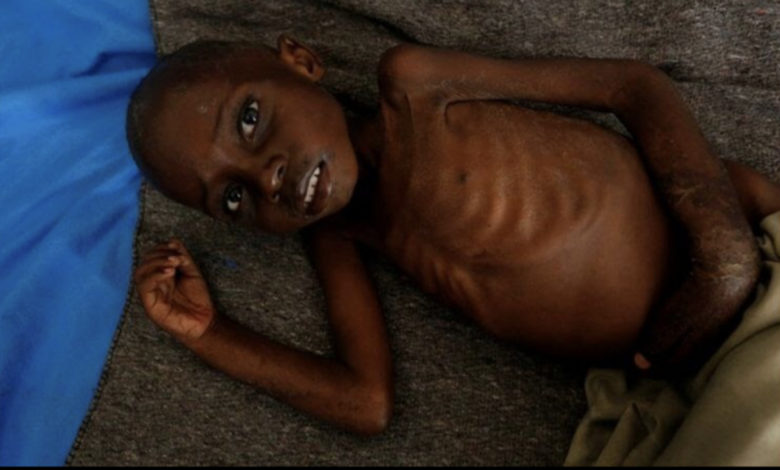70% Of Households In South Kivu, DR Congo Suffers Famine – Study

Seven out of every 10 households in the South Kivu province of the Democratic Republic of Congo are victims of famine, a recent study reveals.
According to a study carried out by the provincial government, the World Health Organisation (WHO) and the DR Congo National Institute of Statistics (NIS), four territories namely Shabunda, Mwenga, Uvira and Fizi, are seriously affected out of the eight that makeup South Kivu province.
These households are reported to have very poor and limited access to food.
The report of the study that was published on Tuesday, November 17 reveals that the territories of Kalehe, Walungu, Idjwi and Kalehe are the most affected in the category of moderate famine with eight out of 10 households affected.
The report titled “Emergency Food Security Assessment” shows that five million inhabitants are victims of food insecurity.
“It is about 5,455,572 persons from 909,262 households making a percentage of 33.5 who live under light food security conditions,” reveals Marcellin Bahaya, the South Kivu Provincial Minister of Agriculture.
“These households have a bad food consumption ratio and cannot access food without emptying their sources of existence. 31.7 per cent live under limited food security conditions while 33.7 per cent under severe food insecurity,” Bahay added.
“In view of this sombre food security situation, it turns out that the response to the crisis is multi-sectorial as well as transversal and necessitates the assistance of partners both public and private.
The minister said innovations and new approaches must be developed and harmonised by the actors in food security, adding that “A respond plan and contingencies must be elaborated to this end”, the minister added”.
For the year 2020, the rate of prevalence of famine has been evaluated at 67.2 per cent as against 75.8 per cent in 2019, 54.6 per cent in 2018 and 64 per cent in 2017.
The principal causes of this rather precarious food situation in that part of the Democratic Republic of Congo is insecurity in several territories of the province, the abandonment of the agricultural sector by the youth in preference for artisanal mining, the coronavirus pandemic and the expropriation of farms by greedy individuals
Support Our Journalism
There are millions of ordinary people affected by conflict in Africa whose stories are missing in the mainstream media. HumAngle is determined to tell those challenging and under-reported stories, hoping that the people impacted by these conflicts will find the safety and security they deserve.
To ensure that we continue to provide public service coverage, we have a small favour to ask you. We want you to be part of our journalistic endeavour by contributing a token to us.
Your donation will further promote a robust, free, and independent media.
Donate HereStay Closer To The Stories That Matter




